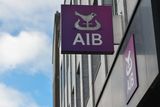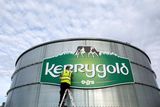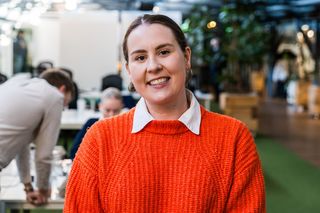You have to learn from the past and act accordingly
PJ Timmins saw the need for companies to look at problems differently. He set up The Alternative Board to offer professional help
ALTERNATIVE REMEDIES: PJ Timmins assists businesses to achieve their potential through embracing diversity
One definition of madness is to keep doing the same thing and expect a different result. So if we are to underpin our recovery with sustainable growth that learns from the past but does not get stuck in it, perhaps we may need to start thinking and acting differently.
The Alternative Board is the world's largest franchise business providing advisory board and executive coaching services for business owners and operates in more than 450 cities in the US, UK, Canada, the UK and Venezuela. I see a great opportunity here for this type of professional service that targets SMEs and offers them peer support at CEO level, particularly as the business environment and culture for SMEs has changed radically since the recession.
Firstly we need to reframe our current position. High debt levels and high taxes are like the sunk and forgotten costs of a business. We can do little about them and they do not prevent growth. There are good and not so good people everywhere. We must put our faith in the good ones.
We need good bankers who can finance good business, we need good politicians who can lead effectively. We need to leverage the experience and drive of debt-laden risk takers, enabled by legislation at least as progressive as our nextdoor neighbour. We also, ultimately, need to live within our means.
Agility, adaptability and determination are the key ingredients to success in a more stable economic environment. The challenge is how to accelerate these important mind sets and thus accelerate our recovery.
We are a small island, but incredibly well connected to the global economy, through our language, culture and reputation for helping nations. Our FDI and Enterprise policies have done wonders for importing true diversity to our shores. However, if we are to maximise our collective wisdom, we must truly embrace and promote this diversity in our boardrooms and our institutions of leadership.
At the Alternative Board we make businesses stronger by embracing diversity. We bring up to 10 business owners together for a fast four hours once per month to solve their business challenges. We also conduct a one-to-one session with the key decision-maker, between meetings to ensure they are prepared for their meeting and are delivering against their strategy. It is critical however that they are non-competing from diverse industries but share a commonality in terms of the types of challenges they face.
At a recent debate of the Corporate Governance Association of Ireland, the proposal to have gender quotas on board of directors was vigorously debated. The overwhelming sentiment of the debate was that rigorous assessment of diversity of backgrounds, experience and thinking patterns was a more important factor than a proxy for diversity, the "gender quota".
At The Alternative Board, we also assess and categorise member's behavioural styles to help communications and balance in the leadership team. Many business leaders unfortunately tend to recruit or promote people they like and thus people who reflect their behavioural style. We have witnessed the result of this kind of practice from the reckless behaviour in a number of our financial institutions during the boom.
The style was to dominate or influence their environment, but there were few in authority leading the charge for control and stability. We can now measure the diversity of a team, and we should if we are going to have real conversations and changes around the shape of our leadership teams. Embracing diversity is one of the keys to collective wisdom which drives adaptability.
Agility and the speed of change is a function of accountability. Accountability is not about blame, but about creating a relentless pursuit of the driving critical success factors of an organisation.
Why doesn't the Opposition hold ministers to account by consistently asking what the minister commits to achieving in respect of a certain issue in the next 30 days, and then following it up? Where were the opposition parties in respect of Priory Hall?
Consumers in many countries enjoy a protection by their local authorities in the event that a builder is found not to be in compliance with regulations, and where fines are ineffective. The local authority must step into the shoes of the provider and fix the matter for the consumer. That encourages the culture of accountability.
The law is not necessary in most cases to improve accountability. The Government started well with a drive and a plan for their first 100 days. But why was there not the same level of determination to achieve and account for the second 100 days and each subsequent 100 days?
This equally applies to small business. The Alternative Board members hold their fellow peer board members' feet to the fire on a monthly basis on their commitment for the past month. Holding ourselves accountable to ourselves, our peers and our customers is rarely comfortable but, with practice, one relies on the feedback as it hastens personal and business success.
While we sometimes think of the inspiring determination of our world champion walker, Rob Heffernan, or in business, Michael O'Leary of Ryanair, we forget that most of us are determined in different ways.
Some make great sacrifices to give the best to their kids, others to save for the new car, or to buy their first house, and we are moved by the stories of ordinary people facing enormous adversity. The common thread among these stories of determination is that people are strongly motivated by the clarity of their vision and purpose, but also the clarity of the route to achieving it.
This is probably the ingredient that is most absent today as we lurch from one austerity budget to the next, seeking to regain our fiscal sovereignty. But why? What is the purpose of this sovereignty? Many would argue the Troika had to enforce the changes that we could not do for ourselves.
Unfortunately our human condition often makes us more motivated by loss than by gain. We seek to regain what we had and lost, rather than what we can have. The vision for the country needs to be continually redrawn, improved, and evangelised if it is to be owned by its stakeholders.
The vision needs to be a connected one between individuals' personal vision as well the macro-vision for both an organisation and country. The vision may change, but its presence is the validation for all the sacrifices, effort and initiatives which compels individuals towards that vision. The creation of that vision is often limited by unfounded "self talk" that was based on some limited past experience. So how do we avoid the limiting "self talk" that goes on in our heads every day?
The answer is to have a conversation and don't fly solo – and above all, don't try to reinvent the wheel.
Whatever your challenges or goals, there are many highly successful people out there that would love to help. Find people who have already been there, who walk their talk, and who have achieved success. Other business owner/executives and peer groups can help immensely.
A Texan friend of mine puts this very well. "Down here, we have a saying: If one of your peers says you are a horse, you say, what does he know? If three of your peers tell you that you are a horse, you say, I must really think about this. But if five people tell you, you are a horse, go buy a saddle".
At the Alternative Board we bear witness to how the collective wisdom and clarity of advice members receive at peer board meetings eliminates the fear of change.
We assist members to achieve their potential through embracing diversity and accountability and using processes and techniques that have been developed over 23 years with over 15,000 businesses to align their personal and company vision.
The key ingredients of adaptability, agility and determination are fundamental on our road to recovery. It is within our reach, but we need to connect to others to make it happen.
PJ Timmins, former CEO of Clerys, is founder of The Alternative Board
Join the Irish Independent WhatsApp channel
Stay up to date with all the latest news














